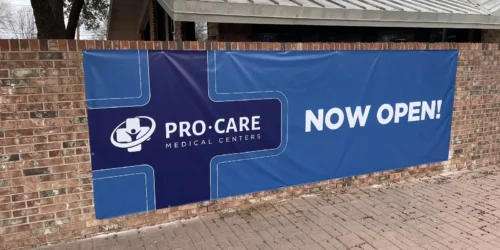Anatomy of a Herniated Disc
Your spine is protected by your backbone, a feature humans share with many mammals and other animals. The backbone is also known as your vertebral column and is made up of 33 vertebrae, or discs, divided into four groups
- Cervical: Neck area, 7 vertebrae
- Thoracic: Chest area, 12 vertebrae
- Lumbar: Lower back area, 5 vertebrae
- Sacral: Below the waist, including tailbone, 5 vertebrae
Each vertebra is protected by an outer layer called the annulus. Sometimes, the spongy material within the annulus gets pushed out through a tear. This painful condition is known as a herniated disc. The disc may also be referred to as being slipped, bulged, or ruptured. Herniated discs can occur anywhere along the spinal column but most often occur in the lumbar section along the lower back. Back pain specialists may help in addressing herniated discs.
Herniated Disc Symptoms
The form your symptoms will take will depend on which area the herniated disc has occurred, as well as whether the herniated disc is sitting on a nerve, which could lead to nerve damage. In most cases, lower back pain will be your first sign that you may be experiencing a herniated disc. Other symptoms include:
- Sciatica: The most common place for nerve damage after a herniated disc in the lumbar area is to the sciatic nerve. Pressure on this nerve can cause pain that radiates from the buttock down the back of one leg.
- Numbness or tingling: You may feel these sensations in the leg or foot if you have a lumbar herniated disc or in your shoulder or arm with a cervical herniated disc.
- Weakness and pain: Again, you will feel these sensations in the leg or foot for a lumbar herniated disc, and with a cervical herniated disc, in your arm and shoulder. You may also feel pain in the back or neck.
- Loss of reflexes: due to pressure on your nerves, you may notice slower or limited reflexes to various stimuli. For example, you may find that with a cervical herniated disc, your ability to react to a ball being thrown your way or a dish falling from the counter may be much more limited or even nonexistent.
- Loss of bladder control: This is a rare but serious symptom of lumbar herniated discs that require immediate medical attention. It is caused by the suppression of the roots of your spinal nerves.
Herniated Disc Causes
Over our lives, the daily wear and tear of our bodies begins to rear its ugly face as we age. Like everything else in your body, your vertebral column becomes more susceptible the older you are. Discs tend to degenerate over time. They lose the water that helps them retain the spongy texture that helps with shock absorption. Because of the water loss, the discs shrink, making it easier for them to slip out of the annulus, making you vulnerable to a herniated disc.
Regardless of age, trauma events, such as falls, accidents, and other sudden blows to your body can cause herniated discs. You can prevent this by taking care when lifting and ensuring that you participate in regular exercise, ensuring that your vertebral column remains flexible and protective.
Risk Factors for Herniated Discs
You are especially at risk for a herniated disc due to the following:
- Gender: Herniated discs occur most frequently for men between the ages of 20 and 50.
- Lifting habits: If you frequently use your back muscles to lift heavy objects rather than your leg muscles, and especially if you twist your back muscles while lifting, you will be vulnerable to herniated disc symptoms.
- Spine strain: People whose lifestyles require a lot of repetitive movement in the spine are more likely to experience a herniated disc.
- Sedentary lifestyle: This includes people who spend a lot of time driving, such as truckers. Regular exercise can help prevent herniated discs as well as many other conditions.
- Smoking: Due to its impact on oxygen supply, smoking can cause faster degeneration of the disc, which may lead to more significant pain.
Nerve Damage
If left untreated, herniated discs in any area of the vertebral column can cause significant nerve damage.
One particularly serious example of this is in the case of cauda equina syndrome. The cauda equina is a group of nerve roots at the lower end of the spinal column, which are responsible for helping us control the muscles below the waist, including walking and bladder control. Cauda equina syndrome is a form of nerve damage that can cause permanent paralysis. It can also affect your ability to control your bladder, respond to sexual stimuli, and other important functions for the rest of your life.
Even if that specific condition doesn’t arise as a result of your herniated disc, there is still a chance that you could experience long-term nerve damage. Depending on where your herniated disc is and the nerve that it puts pressure on, you could end up with permanent numbness or tingling in various areas, especially your hands and feet.
Treatment for Herniated Discs
You might wonder, what can you do about herniated disc pain? Initially, your doctor will ask you to rest. No matter what injury you have, rest is one of the best ways you can treat a problem. With rest and patience, most herniated discs will improve over days or weeks. You may have pain during that period, but after three to four months, you could stop experiencing symptoms altogether.
You can treat the pain with over-the-counter drugs such as nonsteroidal anti-inflammatory drugs (NSAIDs). These anti-inflammatory drugs can help soothe the pain that comes with a herniated disc.
Your doctor may also refer you to physical therapy or for a regular epidural steroid injection, which reduces inflammation. This treatment tends to be suggested for patients who have not experienced relief after six weeks or more of symptoms.
In some cases, a doctor may suggest surgery. This will be especially true for patients who are experiencing continued weakness, loss of bladder or bowel control, and difficulty walking. Surgery comes with its own complications, so this will be a last resort option for many physicians.
Herniated discs can cause significant pain. It is important to work with your medical team and follow your treatment plan. The back pain specialists at ProCare can help you get back on your feet.



